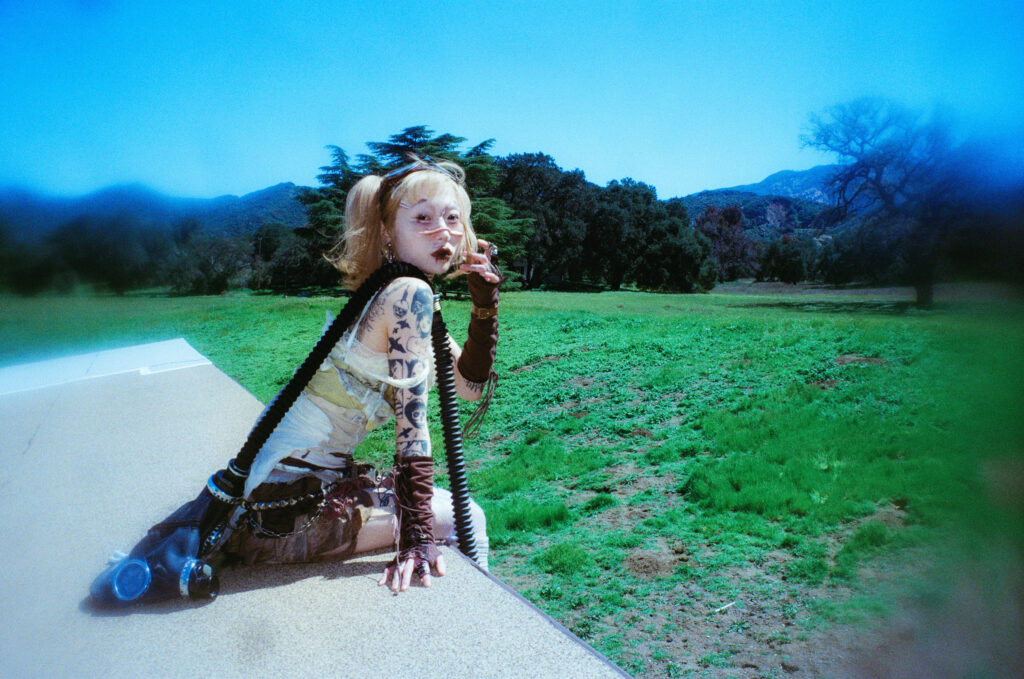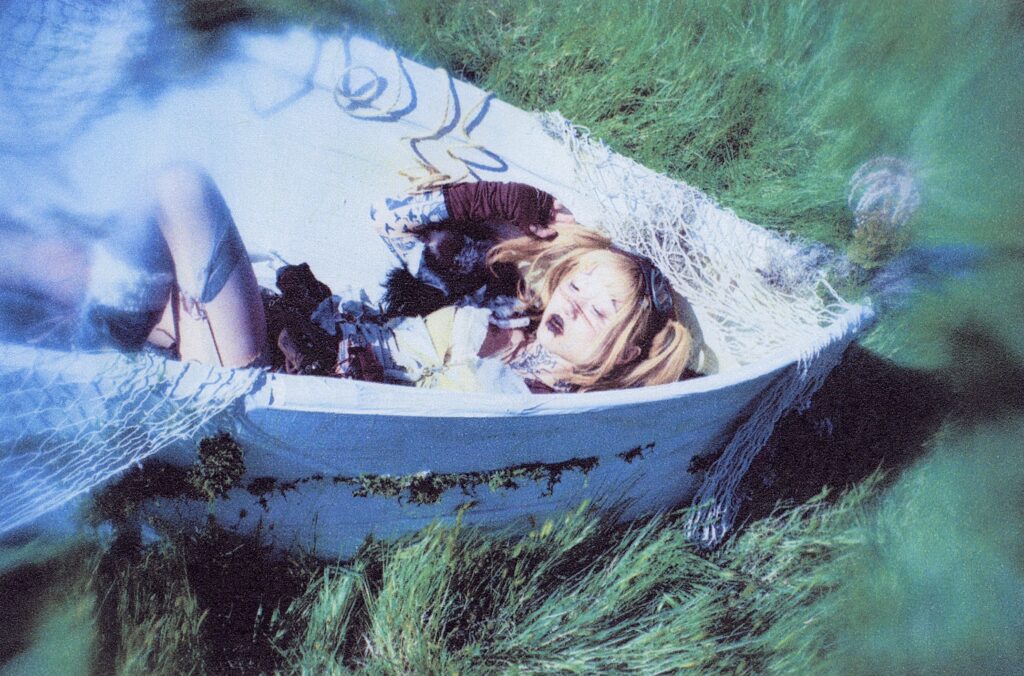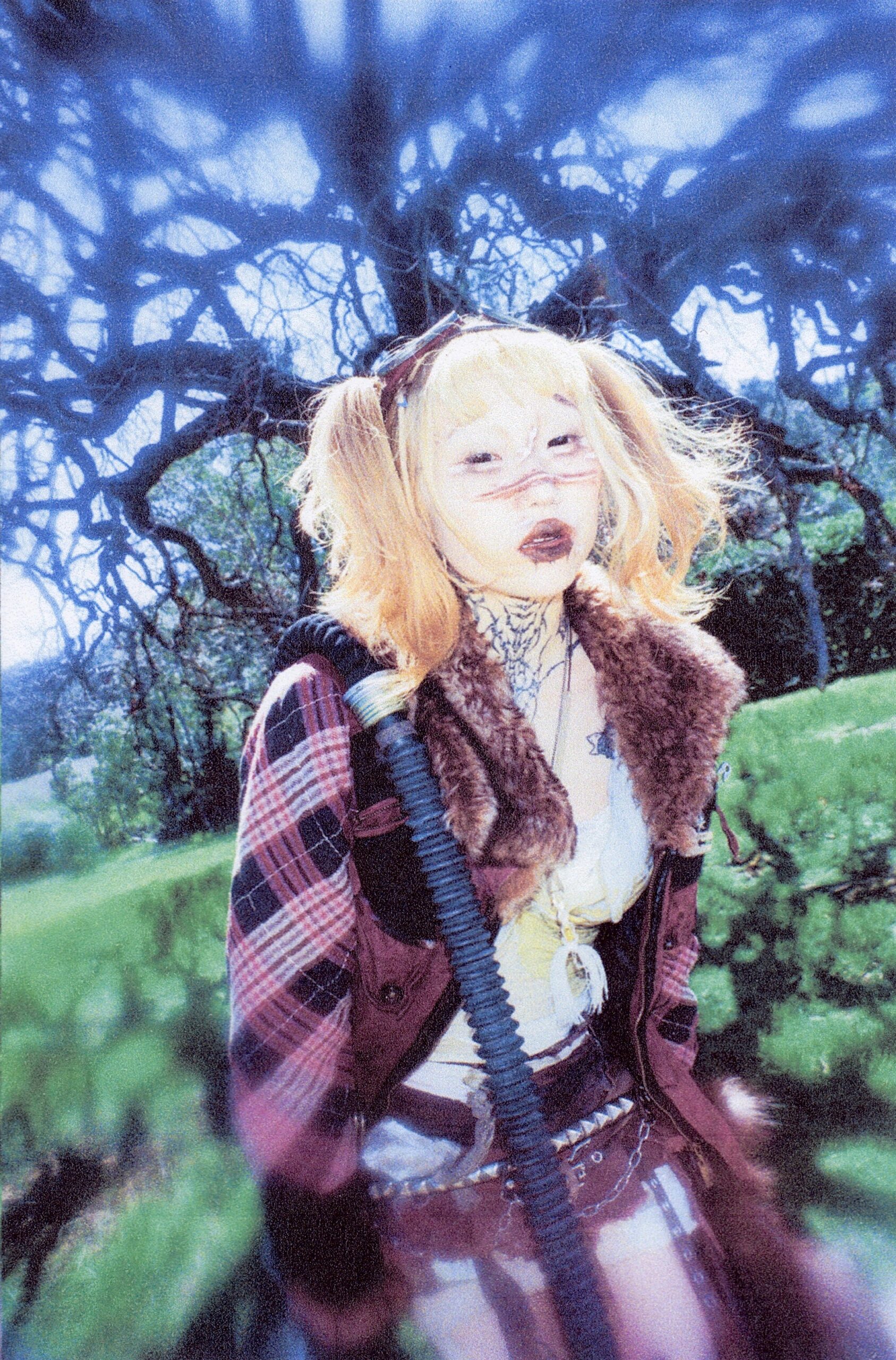Yeule’s first offering of the year with “sulky baby” marks a transition from the chaotic pop sounds of their critically acclaimed 2022 album, ‘Glitch Princess’, into a more hazy and slowcore-inspired sound. The nostalgia-seeped sound is both sonically pleasing while simultaneously relevant to the story of the track, with yeule using the song to revisit and heal the wounds of her childhood self.

Photography by Jaxon Whittington
“‘sulky baby’ was like a 2000s alt-rock shoegaze hybrid tinted in sad satire,” shared yeule on the release. “I felt like I was talking to a younger version of me, stopping her from crying, looking back at the ways I betrayed and neglected that innocence from myself. I failed to protect her and I felt like I needed to go back in time and fulfill what she was starved of. So that she could return to my side. So that I can smile like a little kid again. The song gives quite vivid descriptions of depression I felt with almost a burning passion, yet I tried to give it a light-hearted tone.”

Through rifling through their collection of journals (which the artist refers to as their “scars”), yeule pieced together reflections on their coming-of-age into “sulky baby,” where they draw from tattered memories to heal long-standing wounds. There is a romanticism of their own pain in the song, yet for yeule, the romanticizing of their own suffering was a means to survival.

“I think romanticizing is not always that bad,” explains the artist. “It helps to do it sometimes when you’re dealing with a repressed memory. I think it is called an advantaged delusion? Sometimes, that’s the only way I can remember parts of me I don’t want to remember, so that I can lay her to rest and heal. My mother used to tell me as a child, not to sulk all the time. I guess that’s why sulking is so special to me.”

Alongside the release of the single, yeule has dropped a blurry-lensed music video where they rekindle with their younger self. In a nostalgic show of affection, the visual plays with the duality between delusional joy and suffering that inspired the song, showing yeule giving their younger counterpart some reprieve from their pain with stuffed animals, dips into the pool, and imaginary boat rides through the middle of a field. While yeule’s character is ethereal and almost otherworldly, clad with apocalyptic goggles and tattered garments, their desire to repair their inner child is a struggle that is quite human.
Discover More





